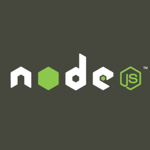As the Windows Azure platform began branching out last year from support for purely Microsoft frameworks like .NET, going so far as to incorporate Java, one possibility that was overlooked at the time was to support JavaScript. The reason seemed obvious: JavaScript, as its creators would tell you, is a client language. Well, that’s no longer true, now that Node.js makes it about as easy to write JavaScript for the V8 interpreter on the server as it is for V8 in Google Chrome on the client.

Last month, Azure demonstrated how much both its platform and its proprietor’s attitude had matured by opening up support for Node.js. Today at a summit of Node.js developers in San Francisco, the maker of a SaaS-based IDE for developers, announced it has added the ability for developers to deploy Node.js apps to Azure.
Cloud9 began supporting Node.js on the Joyent cloud last July, and then added Node.js support for Heroku just last September.
The Cloud9 IDE provides all the basic functions that a developer would expect from an “Express” IDE, except it doesn’t have to be installed anyplace. Taking a cue from cloud-delivered word processors, it provides a full development and debugging console, including the ability to set breakpoints and run immediate JS instructions using a console window. Previous editions of Cloud9 bore a greater similarity to Visual Studio, but the latest edition deployed now utilizes a more distinct style, with functional icons along the left side, a column for logging events in the middle, and the editor window as the rightmost two-thirds.
The development team released a set of videos this morning (part 1 of which appears above) showing how deployment and execution of a task remains a one-click process for Azure, just as it has been for Heroku and Joyent.
Cloud9 is typically available to developers through a kind of voluntary subscription model. A developer can opt to use the product for free, so long as he makes his source code available to others through an open source licenseshares his code with others through the Cloud9 public project. Developers who wish to retain the right to use their own proprietary licenses pay $15 per month. A Cloud9 spokesperson confirmed to RWW this afternoon that both options remain available for developers deploying to Azure.

















